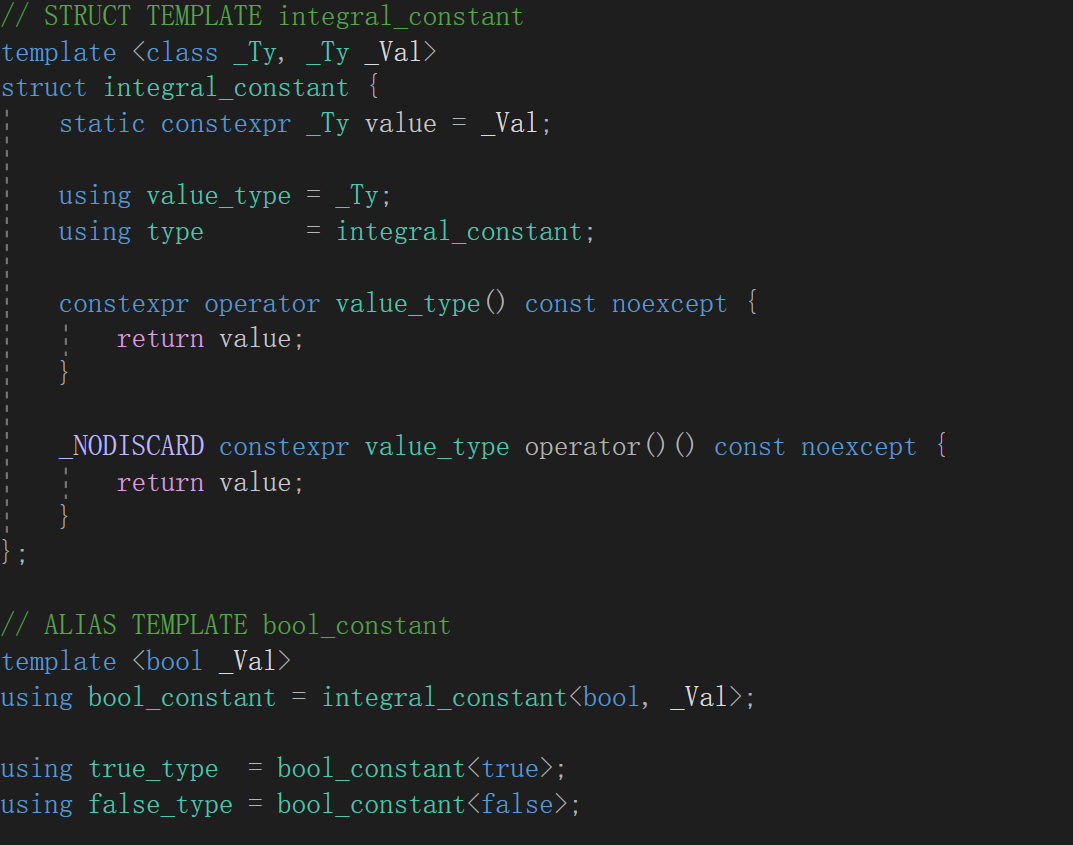c++ true_type与false_type
std::true_type和std::false_type
实际上是类型别名

是两个类型(类模板)
注意区分true_type与false_type与true和false区别
-
true_type,false_type代表类型 -
true,false代表值
nmsp1::FalseType myfunc1();//返回假这种含义 nmsp1::TrueType myfunc2();//返回真这种含义
自己模拟实现
namespace nmsp1 { template<bool val> struct BoolConstant { using type = BoolConstant<val>; static constexpr bool value = val; }; using TrueType = BoolConstant<true>; using FalseType = BoolConstant<false>; template<typename T,bool val> struct AClass { AClass() { cout << "AClass()执行了" << endl; //if(val) { // T tmpa = 15; //} //else { // T tmpa = "abc"; //int tmpa = "abc"; //} //if constexpr (val) { // T tmpa = 15; //} //else { // T tmpa = "abc"; //int tmpa = "abc"; //} AClassEx(BoolConstant<val>());//创建一个临时对象 } void AClassEx(TrueType) { T tmpa = 15; } void AClassEx(FalseType) { T tmpa = "abc"; } //当为ture时只会去编译重载版本的TureType }; } nmsp1::AClass<int, true> tmpobj1; //如果是第一条注释的if语句会报const char[4]无法转换为int nmsp1::AClass<string, false> tmpobj2; //如果是第一条注释的if语句会报无法从int转换为string
编译器设计时的考量,编译器是能够在编译器时期判断出来执行AClass类模板构造函数的哪个分支的,但从编译出代码这个角度来说,不管是哪个条件分支都会去编译,那么编译false分支就会报错.
if constexpr:属于编译期间if语句,可以解决上面
角度来说,不管是哪个条件分支都会去编译,那么编译false分支就会报错.
if constexpr:属于编译期间if语句,可以解决上面
原文链接:https://blog.csdn.net/m0_51271123/article/details/121780266



